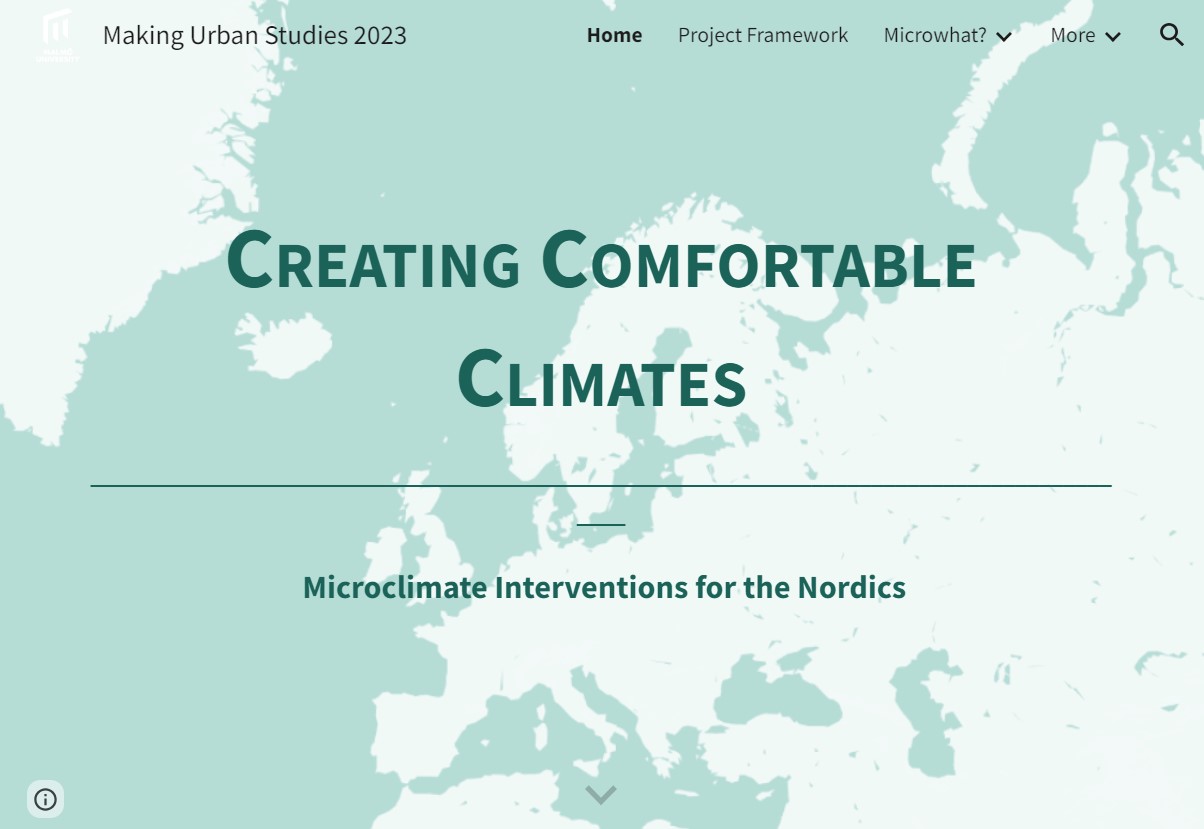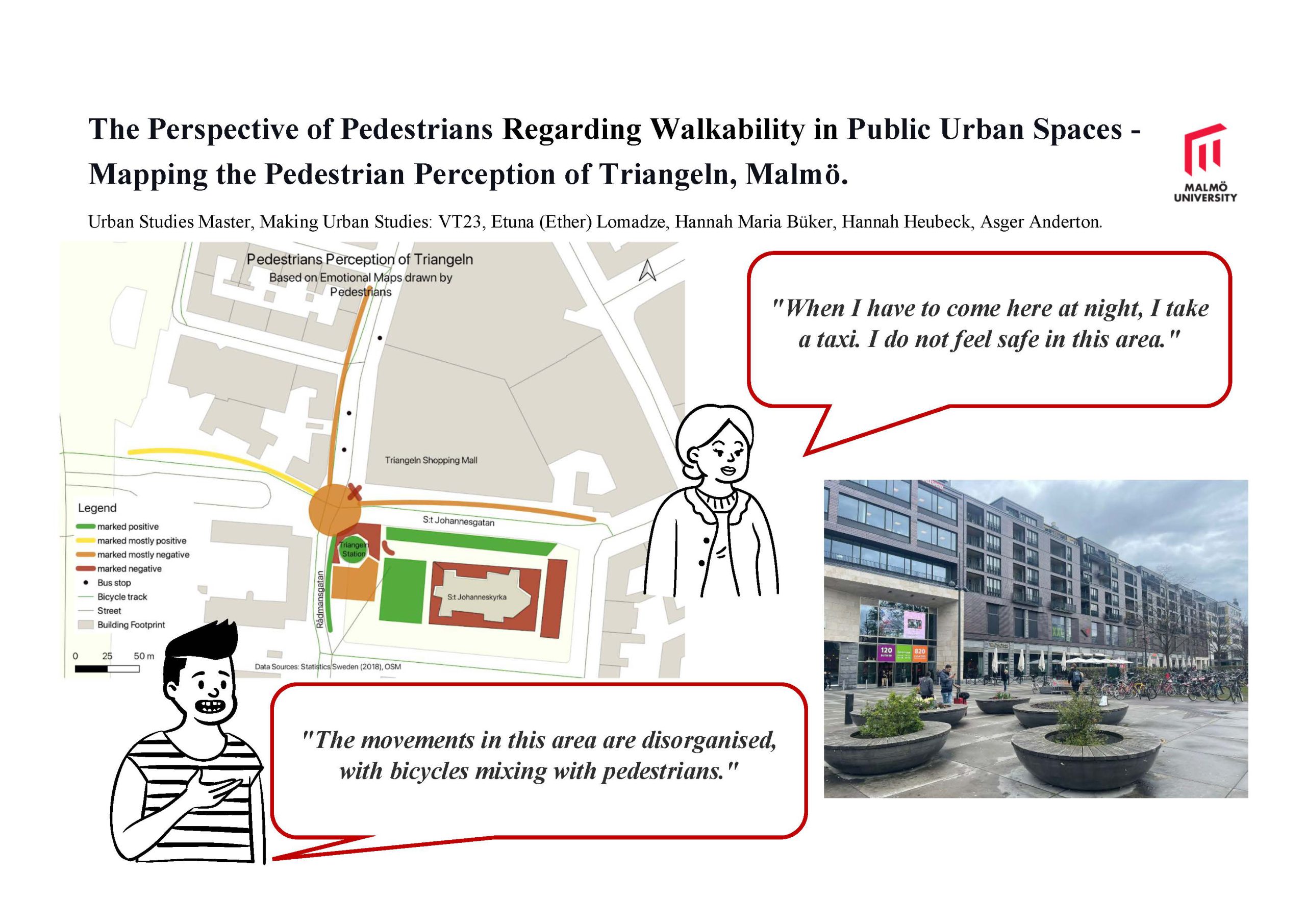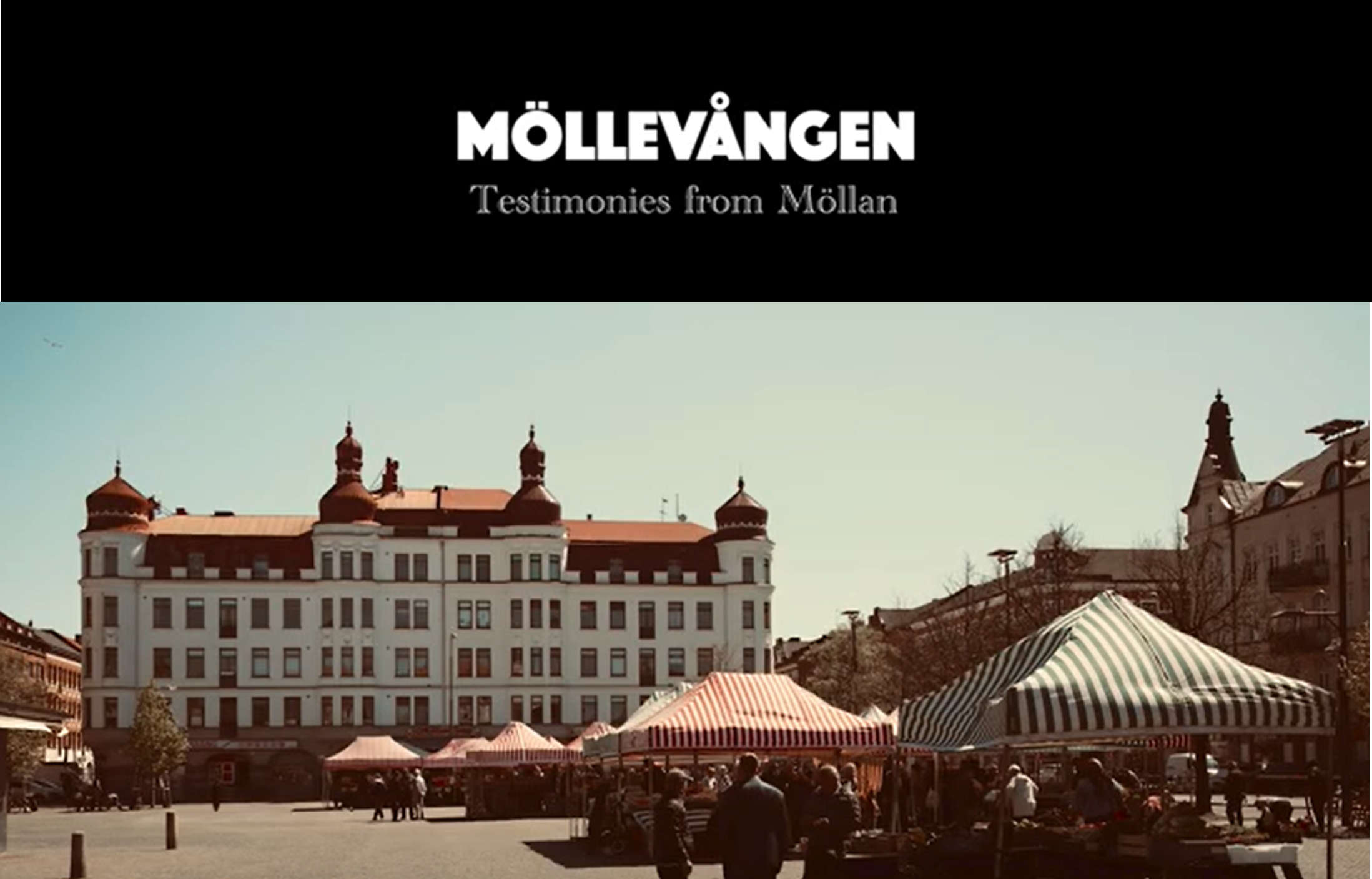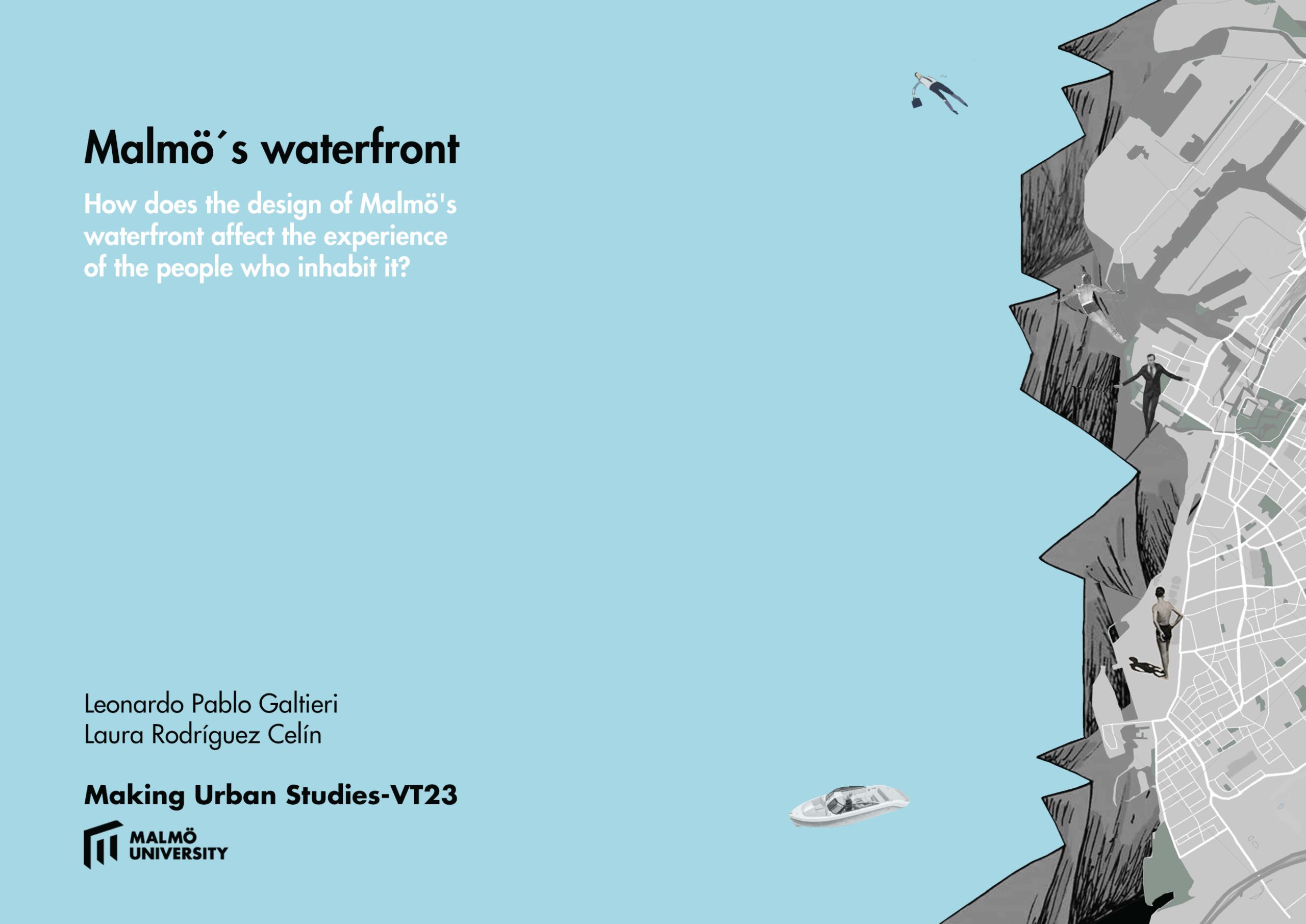In making urban studies students conduct independent research in small groups. The assignment brief emphasizes experimenting with alternate methods and forms of presentation in order to capture and communicate a richer material or to make urban research more accesssible.
Responsible Teachers: Peter Parker, Chiara Valli
 |
Feminism for urban planners
This booklet is the outcome of our research within a project in the course Making Urban Studies-VT23 at Malmö University, Sweden. It is planned to shed light on the importance of feminist approaches in urban planning, while also including the practical aspect and finally, presenting a feminist reading of an area in Malmö. It aims to bridge feminist theories to planning practice and give urban planners an overview of the relevance and current important elements of feminism for and in their practice. By Anaïs Bechelli, Maike Greb & Mia Olsson
|
| Davidshall 2026: Changing Participation with AI
In this project, I investigate the feasibility of using AI to engage residents in the actual planning procedures. I based my understanding of participation on the notion that residents want to engage but that planners, designers and architects oftentimes speak a different language. A method I call a Co-Creative Reflection method (CCR)1, showed planners can engage different stakeholders through an iterative process, and eventually the proposals could reach a higher degree of satisfaction and more grounded proposals. By Emil Eriksson Lidén |
|
 |
You bend it and you tend it and you do as you want: an oral histories zine about DIY music in Malmö
This zine was created to document stories told from within Malmö’s DIY (do-it-yourself) and underground music scenes and to provide an urban perspective. By Julie Goodrich & Alice Porsfelt |
 |
From Universalism to Discretion? A study on accessing rental housing through queues in Sweden The general idea for distribution of rental housing in Sweden is allocation through queues, where apartments are by rule offered to the applicant with the longest time in the queue. However, there are no obligations for landlords to use a queue system, and other methods for allocation exist, e.g., matching. This study examines the mechanisms that are hindering people from accessing a first-hand rental contract, and how these interplay with the universal model of housing. By Henrika Kangas & Oskari Pärssinen |
 |
Creating Comfortable Climates: Microclimate Interventions for the Nordics
Climate-oriented planning often addresses encouraging sunny spots in the dark winters, storm water management or otherwise. The former design approach of minimizing cold winters will conflict with the upcoming predictions of increased summer heat stress throughout the Nordics. In this webpage, we investigate in a Nordic context, creating an overview of potential cooling interventions and present an example microclimate case study of two public squares in Malmö. As such, our objective is to increase temperate microclimate considerations in public space design in an increasingly uncertain and warming Nordic climate. By Olmo Deiss, Tanja Käser & Wytske Kuipers |
 |
The Perspectives of Pedestrians Regarding Walkability in Public Urban Spaces, Mapping the Pedestrian Perceptions of Triangeln, Malmö
This paper aims at capturing pedestrians’ perception, opinions and emotions regarding safety, security and attractiveness in Triangeln, a major transport hub in Malmö, Sweden. The qualitative methods of emotional mapping and interviews have been used and are the main method of this attempt to showcase pedestrians’ perception. By Etuna Lomadze, Hannah Maria Büker, Hannah Heubeck & Asger Anderton |
 |
Möllevången, Testimonies from Möllan
This paper and its accompanying film constitute a study on a Malmö neighborhood in the process of gentrification, examining perceptions of these changes among locals and visitors. By Jens Cornelis Milveden & Clemens Stubbe Østergaard |
 |
Malmö ́s Waterfront By Leonardo Pablo Galtieri & Laura Radriguez Celin
|

